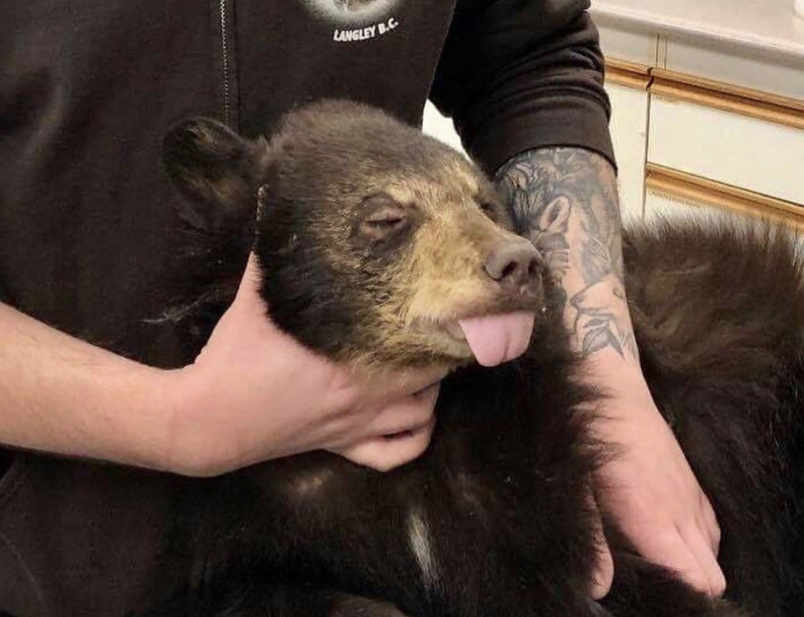A Metro Â鶹´«Ã½Ó³»wildlife rehabilitation centre has joined in the of the BC Conservation Officer Service after it received two Tri-City bear cubs in five days, one emaciated the other allegedly left to freeze in the back of a conservation officer's pickup truck.
The first bear, known as bear #28, arrived at Critter Care Wildlife Society in Langley Jan. 9 after a couple from Anmore found the animal.
The bear weighed only 20 lb. when it arrived, according to a Facebook post by the organization. Critter Care said it took a lot of effort from staff to get the bear stable and “on the right track,” adding, “There is still a long way to go for him to be 100%.”
The second bear, known as bear #29, was brought from Port Moody to the facility by a conservation officer at around 8:30 p.m. Jan. 14 in what Critter Care described as –9 C, snowy weather.
“He came into the centre sedated on the open bed of a [conservation officer's] pickup truck in a kennel open to the elements,” wrote the organization in its Facebook post.
After warming the bear, facility staff said they discovered the 40-lb. creature was over-sedated — “unfortunately, like most bears we receive at the centre.” The post went on to say that with the help of a veterinarian, Critter Care determined the bear had been given up to six times the amount of sedation required, and it suggested the combination of cold temperatures and quantity of sedative could have resulted in its death.
Fortunately, continued the organization, its staff were able to bring the animal back “back from the brink.”
In a video shot by Critter Care, the cub is seen lying on a blanket, wet and covered in snow.
In an email to The Tri-City News, the BC Ministry of Environment and Climate Change, which is responsible for overseeing the BCCOS, said conservation officers are trained to properly handle animals and are guided by the province’s wildlife veterinarians on how to safely transport bear cubs.
“In the Port Moody case, the cub was tranquilized to ensure its safety, placed in a protected enclosure inside the back of the COS truck and rushed to a wildlife rehabilitation facility,” wrote a spokesperson for the ministry.
But while the wildlife rehabilitation facility thanked conservation officers and said they “do a good job,” it also said the policy governing how officers handle bears needs to change, including protocols and education around correct sedation, transportation, and understanding behaviour and ecology.
It supports high fines to deal with human attractants and feeding wildlife. It also said less killing and more relocation needs to take place.
“This needs to be implemented,” it wrote in its Facebook post. “Otherwise, we will have little to no wildlife left and beautiful British Columba will become barren British Columbia.”
Critter Care Wildlife Rehabilitation Centre says it has received an “excessive amount of bear cubs” in 2019 and ’20, and as it builds a fourth enclosure to shelter the animals, it’s already planning a fifth.
Read more from the






